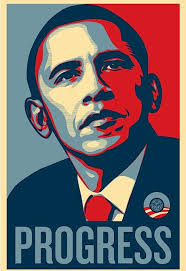supercalifragilisticexpialidocious grammar.
Tuesday, February 12, 2013
Thursday, August 2, 2012
goodbye blog!
I'm no longer teaching in Canada so this blog will not be updated anymore!
Take a look, I hope it's useful for you in some way, either as a teacher or a student.
Wednesday, August 1, 2012
UppInt A: Phrasal Verb: GO
to go out
1.to leave your house, especially in order to enjoy yourself
"Let's go out tonight!"
2. to have a romantic relationship with someone
"Tina used to go out with my brother."
"They've been going out for two years now."
3. Fire/Light- to stop burning or shining
"The lights suddenly went out."
to go over s.t. -to review/examine s.t.
"Before the test, she went over her notes."
to go through s.t.- to experience a difficult or unpleasant situation, feeling etc
"He's going through a divorce at the moment."
"She went through a lot last year and she was quite upset."
to go through
1- Law: if a law goes through, or goes through Parliament, it is officially accepted
"The smoking ban in public places went through without any opposition."
2-Deal/agreement- if a deal or agreement goes through, it is officially accepted and agreed
"After months of negotiation, the deal finally went through."
3-Read/Discuss- to read or discuss something in order to make sure it is correct
"We'll go through the details of the contract tomorrow."
4-Search- to search something in order to find something in particular
"John went through his pockets looking for the keys."
to go through with s.t. - to do something you had promised or planned to do, even though it causes problems or you are no longer sure you want to do it
"I had no choice but to go through with it."
to go under -if a business goes under, it has to stop operating because of financial problems
"After only a few months, the business Rob started went under."
to go off- if an alarm goes off, it makes a noise to warn you about something
"The fire alarm went off at 3am."
1.to leave your house, especially in order to enjoy yourself
"Let's go out tonight!"
2. to have a romantic relationship with someone
"Tina used to go out with my brother."
"They've been going out for two years now."
3. Fire/Light- to stop burning or shining
"The lights suddenly went out."
to go over s.t. -to review/examine s.t.
"Before the test, she went over her notes."
to go through s.t.- to experience a difficult or unpleasant situation, feeling etc
"He's going through a divorce at the moment."
"She went through a lot last year and she was quite upset."
to go through
1- Law: if a law goes through, or goes through Parliament, it is officially accepted
"The smoking ban in public places went through without any opposition."
2-Deal/agreement- if a deal or agreement goes through, it is officially accepted and agreed
"After months of negotiation, the deal finally went through."
3-Read/Discuss- to read or discuss something in order to make sure it is correct
"We'll go through the details of the contract tomorrow."
4-Search- to search something in order to find something in particular
"John went through his pockets looking for the keys."
to go through with s.t. - to do something you had promised or planned to do, even though it causes problems or you are no longer sure you want to do it
"I had no choice but to go through with it."
to go under -if a business goes under, it has to stop operating because of financial problems
"After only a few months, the business Rob started went under."
to go off- if an alarm goes off, it makes a noise to warn you about something
"The fire alarm went off at 3am."
IntUpp D: Describing people: character- Answers
38.1
1.clever- half-witted
2. extroverted-introverted
3. rude-courteous
4. cruel- kind-hearted
5. generous- tight-fisted
6. unsociable- gregarious
38.2
1. likes
2. likes
3. likes
4.dislikes
5. dislikes
6. dislikes
7. dislikes
8. likes
38.3
1. Di's very stingy
2. Molly's usually brusque/blunt.
3. Liz is quite unprincipled.
4. Sam can be assertive.
5. Dick's quite assertive.
6. I find Dave self-assured.
7. Don't you think Jim's inquiring?
9. Jill is peculiar
38.4
1. sociable
2. pessimistic
3. assertive
4. inquisitive
5. extravagant
6. argumentative
7. sensitive
38.6
1.self-confident, self-centered, self-indulgent
2.bad-tempered. good-tempered, quick-tempered
3. narrow minded, single-minded, open-minded
1.clever- half-witted
2. extroverted-introverted
3. rude-courteous
4. cruel- kind-hearted
5. generous- tight-fisted
6. unsociable- gregarious
38.2
1. likes
2. likes
3. likes
4.dislikes
5. dislikes
6. dislikes
7. dislikes
8. likes
38.3
1. Di's very stingy
2. Molly's usually brusque/blunt.
3. Liz is quite unprincipled.
4. Sam can be assertive.
5. Dick's quite assertive.
6. I find Dave self-assured.
7. Don't you think Jim's inquiring?
9. Jill is peculiar
38.4
1. sociable
2. pessimistic
3. assertive
4. inquisitive
5. extravagant
6. argumentative
7. sensitive
38.6
1.self-confident, self-centered, self-indulgent
2.bad-tempered. good-tempered, quick-tempered
3. narrow minded, single-minded, open-minded
IntUppD: Used To vs. Would
USED
TO/WOULD
Adapted from Michael Swan’s Practical English Usage
Used to= past habits and
states which are now finished
I used to eat McDonald’s for lunch every
day.
-refers to things that happened
at an earlier stage of one’s life and are now finished. The situation has now
changed. Used to is not used to say what happened at a past time, how long
it took or how many times it happened.
NOT I used to work very hard last month. I worked very hard last month
NOT I used to live in California for three years. I lived
in California for three years
NOT I used to go to Spain
three times last year. I went to Spain three times last year.
Would = regularly
repeated actions in the past, in the same way as used to
When we were young, we would/used to go skating every winter.
When I was a baby, my mother would/used to sing me to sleep.
*BUT only used to can refer
to past states
I used to have a lot of model cars. NOT I would have a lot of model cars.
He used to be really skinny. NOT He would be really skinny.
*we use used to NOT would to talk about regular and
important habitual behaviour
Roberto used to play a lot of
tennis. NOT Roberto would play a lot of tennis.
He used to smoke. NOT
He would smoke.
IntUppD: Describing one's character
Today in class, we talked about how to describe s.o's personality and character and the positive (+) and (-) connotation that each word can carry. It is important to know which words have a positive (+) or a negative (-) connotation. For example, we discussed the difference between ARROGANT (COCKY) & CONFIDENT.
Here are some more resources to help you expand your expand your vocabulary




http://www.esolcourses.com/content/exercises/grammar/adjectives/personality/words-for-describing-personality.html
ALSO: (Describing physical characteristics)
http://justmesuzanne.hubpages.com/hub/ESL-Describing-a-Person
-A short list of physical appearance adjectives
http://www.esolcourses.com/content/exercises/grammar/adjectives/appearance/vocab1.html
"What is he/she like?"
A short list of personality adjectiveshttp://www.esolcourses.com/content/exercises/grammar/adjectives/personality/words-for-describing-personality.html
ALSO: (Describing physical characteristics)
"What does he/she look like?"
-Here is a website that talks about describing a person's physical appearance http://justmesuzanne.hubpages.com/hub/ESL-Describing-a-Person
-A short list of physical appearance adjectives
http://www.esolcourses.com/content/exercises/grammar/adjectives/appearance/vocab1.html
UppInt A: Wishes/Regrets-Notes
WISHES/REGRETS
WISH + Simple Past/Past continuous/could/would
– Wish for the present/future (want to change a situation)
-I wish I had more
free time (don’t)
-I wish I could buy a
car (I don’t have enough $)
-I wish it would stop
raining in Vancouver
-I wish I were
sleeping right now instead of learning grammar.
WISH + Past perfect (had + past participle) –
regret about the past
I wish I hadn’t drunk
so much last night = I regret drinking so much last night
I wish I had been able
to go outside yesterday .
Mixed Conditional: If
I hadn’t drunk so much last night, I wouldn’t have a hangover now.
If only – strong wish or regret (emphasis) -
often used without a result clause
If only I hadn’t drunk
so much last night!
If only I had more
money!
Bus. Eng: Cool videos related to the environment
This website has various videos related to environmental concerns.
http://www.storyofstuff.org/ If you go to the website, you can watch the videos with subtitles.
http://www.storyofstuff.org/ If you go to the website, you can watch the videos with subtitles.
Subscribe to:
Posts (Atom)